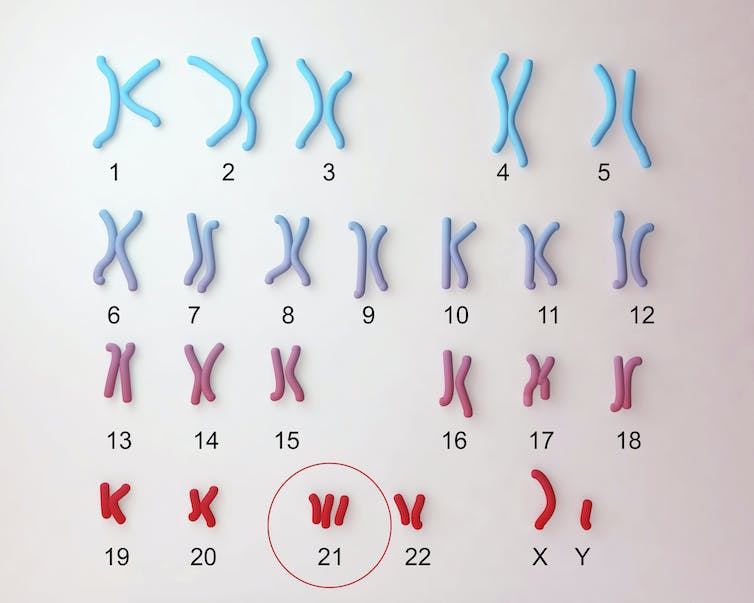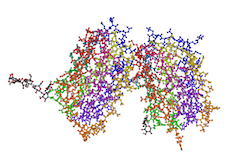People with Down syndrome, or trisomy 21, a genetic condition caused by an extra copy of human chromosome 21, experienced a remarkable increase in life expectancy during the 20th century. In the early 1900s, less than 20% of newborns with Down syndrome survived past age 5. In the U.S. today, more than 90% of babies with this condition live past age 10 and have a life expectancy of nearly 60 years. These increases were likely fueled by greater inclusion in general society, the discontinuation of institutionalization in psychiatric facilities and better medical care.
Despite these advances, people with trisomy 21 experience an increased risk of many co-occurring conditions, such as congenital heart defects, autoimmune conditions, autism spectrum disorders and Alzheimer’s disease. On the other hand, people with Down syndrome tend to have lower levels of hypertension and certain types of cancers.

Down syndrome is also called trisomy 21 because those with the condition have three copies of chromosome 21.
Kateryna Kon/Science Photo Library via Getty Images
Understanding how an extra chromosome 21 causes these risks and resiliencies could advance collective understanding of major medical conditions that also affect the general population. For example, the increased risk of Alzheimer’s disease among adults with Down syndrome can be explained in part by the presence of a gene on chromosome 21 that leads to excess production of the beta-amyloid proteins and plaques characteristic of Alzheimer’s.
In our newly published research, my research team and I found that genes involved in controlling the immune system are critical to the development of multiple hallmarks of Down syndrome. Our findings contribute to a growing body of research on the immune system’s important role in the appearance and severity of some of the negative health effects of trisomy 21, supporting the idea that restoring immune balance could help improve the quality of life of people with the condition.
When too much of a good thing is bad
The genes we identified, which encode what are called interferon receptors, are an important part of the immune system’s antiviral defense. These genes enable our cells to recognize a set of proteins called interferons, which virus-infected cells produce to alert the yet uninfected cells around them about the presence of a virus during an infection.
While interferons do trigger a beneficial immune response against viral infections, chronic interferon hyperactivity could have detrimental effects. Too much interferon signaling is known to be harmful in medical conditions such as systemic lupus erythematosus, a group of genetic disorders known as interferonopathies and severe COVID-19.

Interferons are involved in antiviral immune responses.
Nevit Dilmen/Wikimedia Commons, CC BY-SA
Notably, four of the six human interferon receptor genes are located on…



